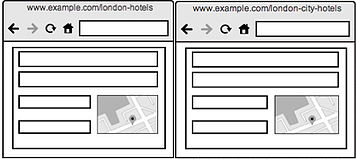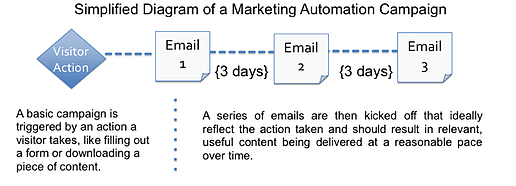As online marketing grows up, buyers are smarter than ever before about how they're being marketed to - meaning they're much less receptive to marketing messages. This presents a challenge for B2B marketers: how can we gain their attention, trust and respect with limited marketing dollars and a sea of competition?
To be effective, B2B marketers and to have the best B2B marketing strategy, you musn't forget the human side of marketing. Buyers are real people, not a segment.
1. SEO (search engine optimisation)
Writing copy for on-page SEO is no longer a formulaic attempt to appease web crawling spiders. As Google tightens its stranglehold on tactics that try to game search engine spiders, SEO is now less focused on the technical bits and more focused on the people who actually use search engines to conduct online research.
Instead of being keyword-driven, we're forced to optimise pages based on our consideration of user experience. This is great news because it ensures we write for humans instead of spiders. Hurrah!
What you shouldn't do:
Stuff your page titles, meta descriptions, and page content with as many keywords as possible. This includes 'SEO landing pages', a trend where you create multiple pages with the aim of targeting similar keywords. For example:

Google's job is to keep its engines free of webspam and I seriously doubt you'll be able to outsmart them. So if you're thinking of engaging in dodgy keyword tactics (including paying for inbound links), stop!
What you should do:
Do everything with the search engine user in mind. Since you most likely use search engines yourself, it shouldn't be too hard. Instead of keyword stuffing, write meta descriptions to pique interest, and name your pages according to your site map so it's easy for users to navigate.
If you want to create an SEO landing page choose one keyword and create one page for it so you don't get penalised for duplicate content.
2. Content
Content marketing is fast becoming the norm, as marketers realise that people want to do their own research without being sold to by pushy one-way messaging, or a salesperson.
What you shouldn't do:
Be boring. This encompasses everything - from using using big words that 'sound smart' but make it difficult for people to understand what you mean, to creating truly bland content that means nothing to your buyers. And although I'm pretty sure article spinning is extinct, if you're thinking of doing it, just don't (or if your agency is, fire them).
What you should do:
Educate. Create content that's valuable because it either entertains your buyers or helps them solve their problems. You probably have a lot more insight into their lives than you think. Talk to your salespeople to get an idea of what will resonate.
Try to say something unique, or take a different angle on an issue. You might think everything has been said and done to death on the internet, but it doesn't mean you can't add your two cents.
3. Email Campaigns
Email is a great marketing tool because your prospects want to hear from you via email, as opposed to taking a phone call.
What you shouldn't do:
Gone are the 'batch and blast' days which consist of emailing everyone in your entire database (regardless of how they got into your database, who they are, and what they do) with the exact same message in the hopes that they will click through. This includes people who got into your database because you bought their contact details. Unless you have an extremely targeted list or a really great deal to offer, the odds are that you will fail.
What you should do:
Personalise your email campaigns according to what you know about them: how you have their details, how they engaged with you, what their interests are, what their roles and responsibilities are, etc. Marketing automation software makes it so easy.
 You should also try to keep it succint and to the point. They're too busy to read through a lengthy marketing email, and if they're truly interested they won't mind clicking through to learn more about what you're saying.
You should also try to keep it succint and to the point. They're too busy to read through a lengthy marketing email, and if they're truly interested they won't mind clicking through to learn more about what you're saying.
Remember that the content of your emails should still seek to educate. Even when they're almost sales-ready, educate them about your product with more than facts, by giving them scenarios of how it would make their lives easier.
When it comes down to it, people want to do business with other people.
So it sounds obvious, but at the heart of it, your leads / buyers / prospects are people, just like you. Maybe it's because we keep referring to them with these labels that marketers too often lose sight of this fact, but being sensitive to the context of what your buyers are thinking and doing when they're conducting online research and receiving communications from you can go a long way. It's the internal quality-check you need to be a good marketer - and a good person!
To get into your buyers' heads, download our free ebook:


